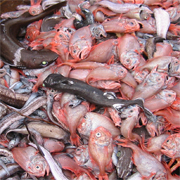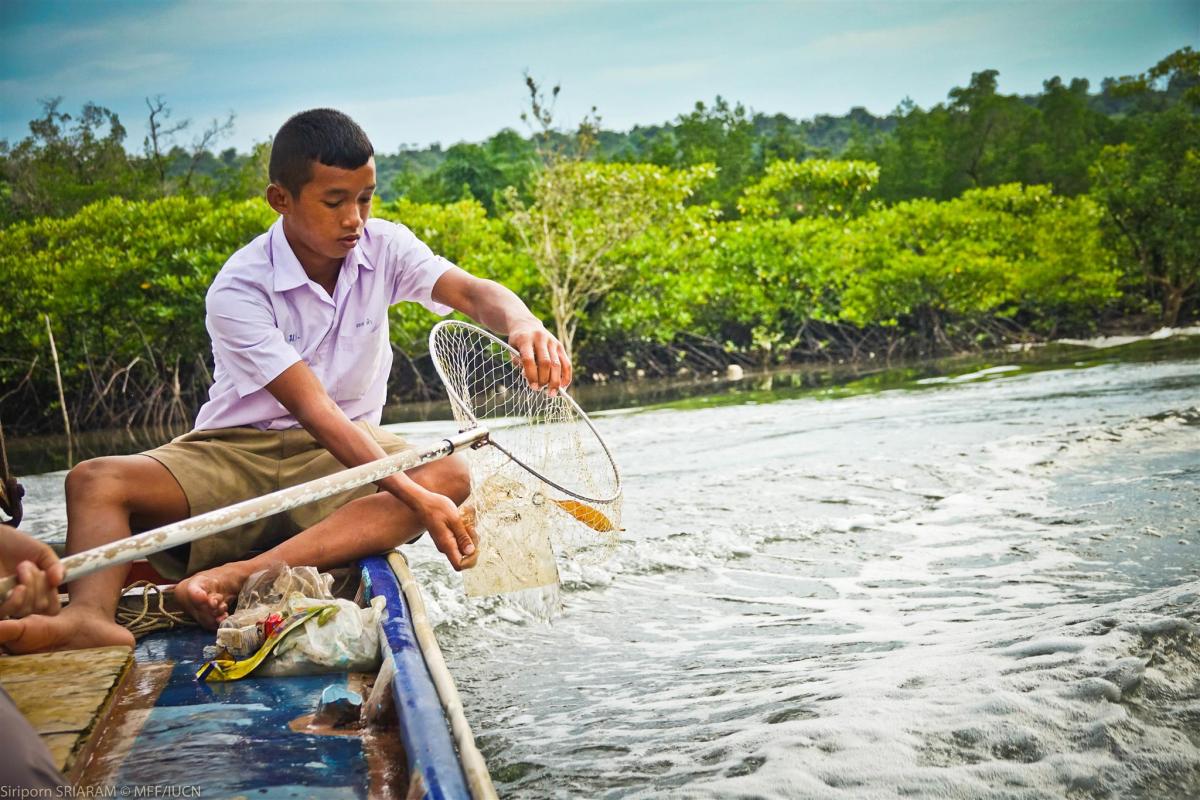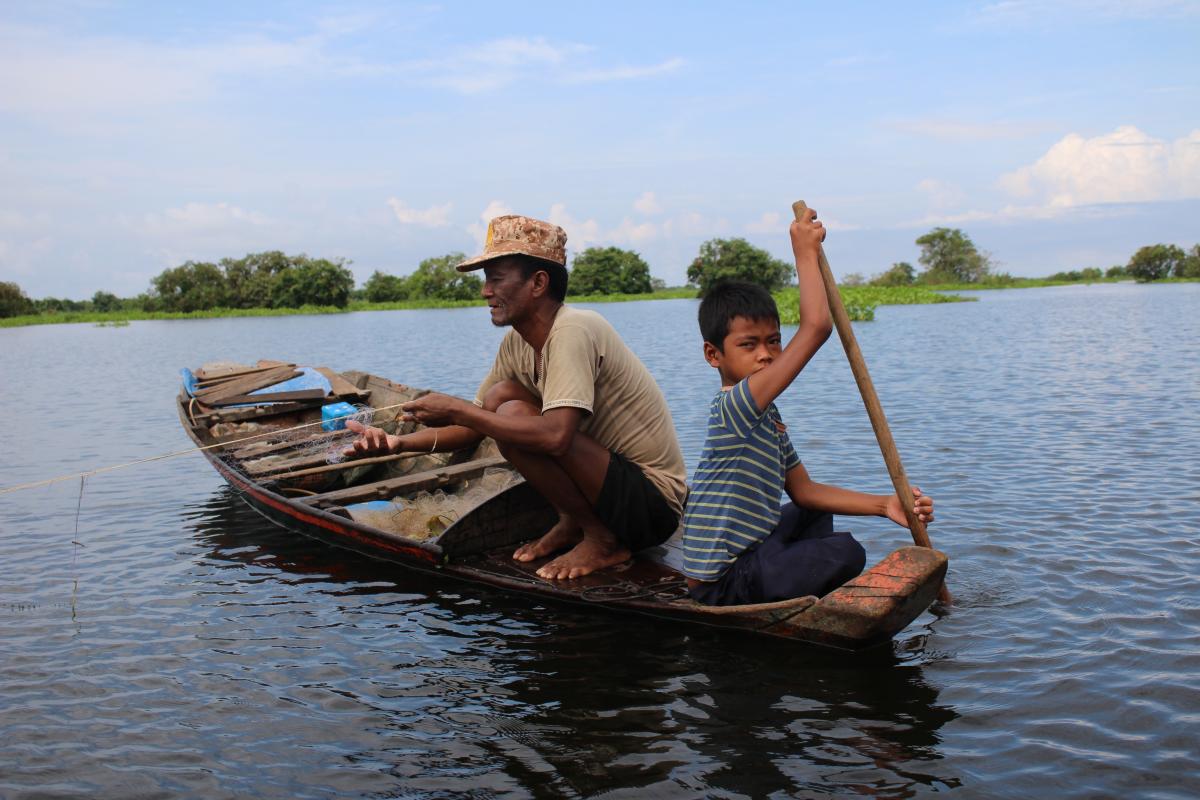Protect the oceans to prevent commercial fisheries
Berlin conference on marine protected areas in European waters and high seas (18-20 April) will chart way forward for marine conservation

Photo: Australian Maritime College
With the ongoing dramatic decline of the world’s fish stocks, commercial fishing will not be possible by 2050. To save the world’s fisheries, the oceans need to be protected and managed better.
The Berlin conference “Countdown 2010 for Marine Ecosystems” (18-20 April), the German EU presidency and the World Conservation Union (IUCN) want to improve the conservation and sustainable use of marine biodiversity.
The conference will cover the designation and management of marine protected areas – in particular Natura 2000 sites –, consult on European Union marine policies and a UN-led implementation agreement for a global network of high seas protected areas. Around 100 experts from European member states, UN organizations and regional conventions will attend.
“Marine protected areas have been proven to be of utmost importance for the recovery of depleted fish stocks and increasing catches in adjacent areas,” highlights Tamás Marghescu, IUCN Regional Director for Europe, “Five years after the establishment of marine reserves in the Egyptian Red Sea for example, fishing has increased by 66 % in neighbouring areas.” This has also been shown for marine protected areas in EU waters.
Marine ecosystems and their biodiversity provide people’s with a wide range of resources and services. Fish makes up 16% of animal protein and is particularly important as a protein source for developing countries. Marine ecosystems also play a key role in global nutrient recycling, oxygen production and climate regulation.
Despite their importance for both nature and human well-being, only about 0.6% of the world’s oceans are protected; the high seas benefit from no permanent protection at all. “In the EU, the establishment of the marine Natura 2000 network has been significantly delayed and needs to be accelerated urgently,” says Tamás Marghescu.
The high seas are particularly threatened: “Entire ecosystems in the high seas are being damaged and lost before we have even started to protect them,” stresses Tamás Marghescu quoting the closing statement of IUCN’s Marine Protected Area Summit held in Washington from 10-12 April 2007: “It is high time for governments to act.”
The German Government regards marine and maritime issues as a priority and will host two high-level events. The conference in Berlin is part of Germany's contributions to the Countdown 2010 initiative. A European conference on the future Maritime Policy will be held in Bremen 2-4 May 2007.
As host of the next Conference of the Parties of the Convention on Biological Diversity (CBD) in May 2008 and with its current EU and G8 Presidencies, Germany plays an important role in developing solutions to problems of marine conservation. Together with the upcoming EU Presidencies Portugal and Slovenia, it will promote its implementation during the triple EU Presidency.
European governments have promised to halt the loss of biological diversity on land and in the seas by 2010. Governments worldwide have committed to create a global network of marine protected areas by 2012. The initiative Countdown 2010 – hosted by the World Conservation Union (IUCN) – supports these and other ambitious conservation targets in collaboration with governments and civil society.
Notes to Editors
The conference website:
www.countdown2010.net/marine
IUCN website on marine issues:
Marine
Countdown 2010 is a powerful network of active partners working together towards the 2010 biodiversity target. Each partner commits additional efforts to tackle the causes of biodiversity loss.
Countdown 2010 website:
www.countdown2010.org
German Federal Ministry for the Environment:
http://www.bmu.de/english/nature/current/aktuell/3836.php
http://www.bmu.de/english/water_management/current/aktuell/3868.php
German Federal Agency for Nature Conservation:
http://www.bfn.de/ and
http://www.habitatmare.de/
EU Marine Policies:
http://ec.europa.eu/environment/water/marine/index_en.htm and http://ec.europa.eu/maritimeaffairs/policy_en.htm
For more information in German and English or to set up interviews, please contact:
Wiebke Herding, Communications Officer, Countdown 2010, IUCN Europe Office
Tel: +32 2 739 0321, mobile: +49 177 2409042, wiebke.herding@countdown2010.netTim Christophersen, European Programme Coordinator, IUCN Europe Office
Tel: +32 2 739 3007, mobile: +32 473 863 608, tim.christophersen@iucn.org
Marine Policies
“High Seas” or oceans beyond national jurisdiction are usually defined by what they are not. The high seas are all parts of the sea that are not included in the exclusive economic zone (EEZ). Generally a state's EEZ extends to a distance of 200 nautical miles (370 km) out from its coast.
Facts about Marine Biodiversity
Oceans cover about 70% of the planet’s surface and hold an abundance of biodiversity with marine and coastal environments being home to 97% of all species on earth. Oceans, marine ecosystems and their biodiversity are vital for life on earth. They play a key role in global nutrient recycling and climate regulation and provide humans with a wide range of resources and services.
Globally, life in our seas produces one third of the oxygen we breathe and human consumption of fish makes up 16% of our animal protein supply and is particularly important as a protein source for populations in developing countries. In 2002, the global fish catch reached about 90 million tonnes and aquaculture contributed with another 40 million tonnes. Three quarters of this production were used for human consumption, the rest for animal feed and thus, to a large extent, ultimately for human consumption.
The World Conservation Union (IUCN)
Created in 1948, the World Conservation Union (IUCN) brings together 83 States, 110 government agencies, 800 plus NGOs, and some 10,000 scientists and experts from 181 countries in a unique worldwide partnership. The Union’s mission is to influence, encourage and assist societies throughout the world to conserve the integrity and diversity of nature and to ensure that any use of natural resources is equitable and ecologically sustainable.
The Union is the world's largest environmental knowledge network and has helped over 75 countries to prepare and implement national conservation and biodiversity strategies. The Union is a multicultural, multilingual organization with 1,000 staff located in 62 countries. Its headquarters are in Gland, Switzerland.
More information can be found at www.iucn.org



